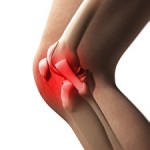In the United States alone, approximately 581,000 knee replacement surgeries are performed each year. Getting a knee replacement is a big deal: if you need a replacement, you have really run out of options with the knee problems that you are having. So knee replacement surgery is the last line of defense for patients suffering from extensive fractures, arthritis and/or osteoarthritis.
Traditionally, knee implants are attached to the femur with cement. Adhesive can break down and may lead devices to fail. Zimmer manufactures an uncemented knee replacement device, the Zimmer NexGen CR-Flex product. The Zimmer NexGen CR-Flex is a synthetic femoral implant which caps the femur (thigh bone) where it connects to the tibia at the knee, without cement. The Zimmer NexGen Knee was approved in 1994 by the FDA. It is estimated that over 3,000,000 NexGen knees have been implanted worldwide.
The FDA approves many medical devices for knee replacement surgery, including the Zimmer NexGen CR-Flex knee device, for use without testing in clinical trials. This is the 510(k) problem that you have been hearing about regarding the vaginal mesh implants and other medical devices that are put on the market with the usual testing. The 510(k) process is a backdoor through the approval process, giving medical device makers the ability to piggyback on a product that is “substantially equivalent” to another device already on the market. So Zimmer knee replacements got a “hey, my knee replacement is just like that knee replacement.” Of course, Zimmer does not sell the product that way. They sell it as a revolution in knee replacements by playing up the whole “cemented versus uncemented” angle.
Dr. Berger
The New York Times reports that a Zimmer consultant, Dr. Richard Berger, had reported to Zimmer about problems with the knee devices in 2006. Dr. Berger had given 125 patients the knee device starting in 2005 and within one year advised Zimmer that the device had not fused completely and was loose as determined by X-rays.
In 2007, Dr. Berger had stopped using the Zimmer device and performed a study with a fellow surgeon, Dr. Della Valle. The results of the study were presented at a meeting of the American Association of Orthopedic Surgeons. Performed in 108 patients, results showed that 8.3% of the patients required another knee replacement surgery because of failure. The study also found that 36% of implants became loose within 2 years of surgery. The looseness of the device may cause pain and another knee replacement surgery.
In 2008, Dr. Lawrence Dorr, another consultant for Zimmer, alerted Zimmer, and other doctors that Zimmer’s Durom hip devices were having problems and failing within a few years of implantation in patients. In both cases, Zimmer responded that the problems with the devices were with surgeons’ technique, not the devices. In response to the concerns raised by the surgeons, Senator Charles E. Grassley issued a letter to Zimmer asking the company to provide data on safety concerns received for any Zimmer products, the nature of the concerns and resulting action taken, and what processes are in place for reviewing the performance of their devices. In response to the problems with the Durom hip device, Zimmer provided the FDA with data from twelve surgical units. The data presented showed that the devices were working well, and as a result, the FDA closed its investigation on the hip devices.
Recall
The FDA issued a recall related to Zimmer’s MIS Stemmed Tibial component in September 2010. The MIS Stemmed Tibial component was designed for use with NexGen CR-Flex and LPS-Flex and other NexGen femoral components. The recall did not address other components or the NexGen CR-Flex.
Orthopedic implants are one of the fastest-growing categories of medical implants because of the aging population. In the United States, unlike, say Australia, there are no patient databases in use to track the performance of artificial hips and knees. This is a big concern as the United States is one of the largest consumers of these products. Further, it is also alarming that such device manufacturers do not have to provide clinical data, specific to the product, to the FDA prior to making it available for implantation in patients.
Our law firm is no longer handling these cases.
 Maryland Injury Law Center
Maryland Injury Law Center

